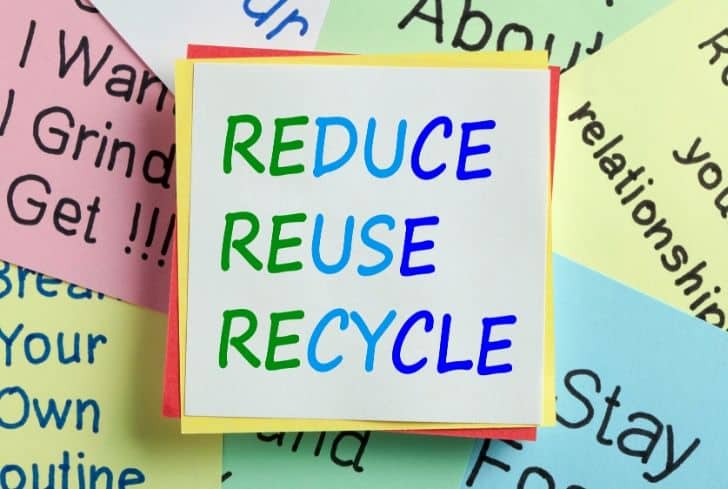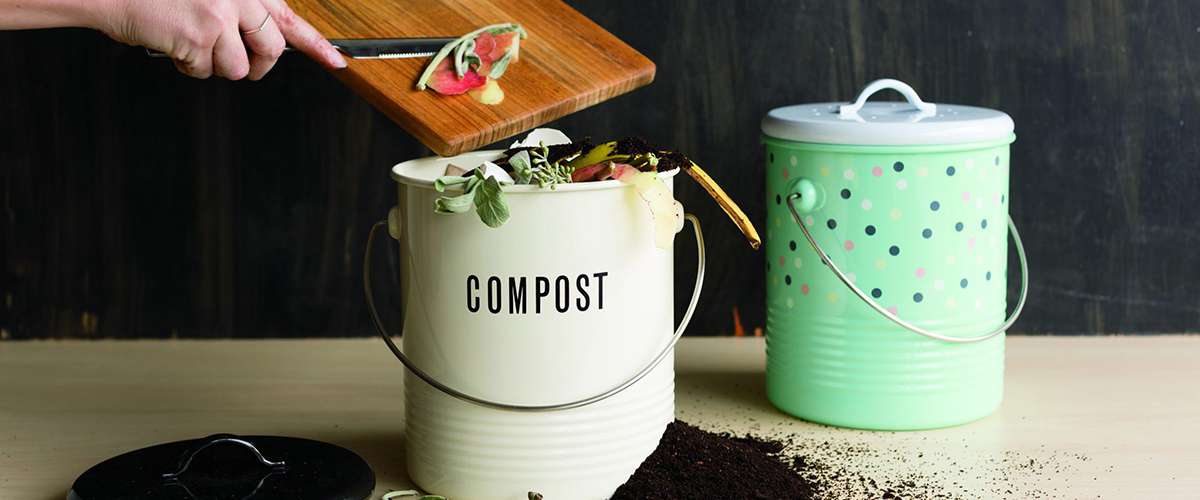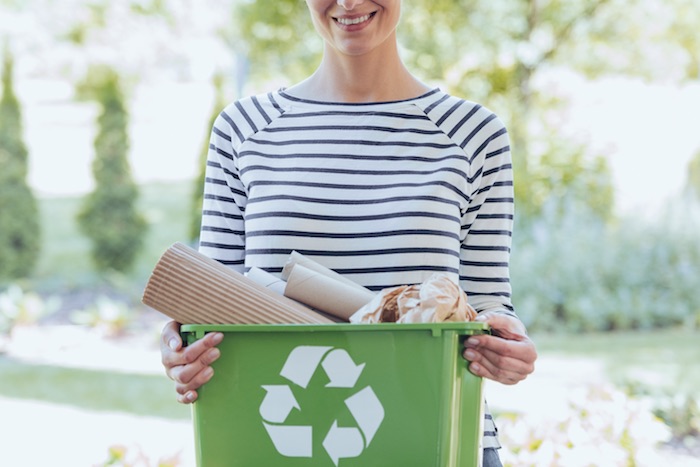11 zero-waste essentials that can help you reduce your waste

Ammy Harryy, a devoted advocate for sustainable fashion and mindful…
When you think about it, the average person creates a lot of waste. Between the packaging from our food and all of the plastic we use, it’s easy to accumulate a lot of unnecessary garbage. But it doesn’t have to be that way!
Suppose you’re looking for ways to reduce your waste; check out these 11 zero-waste essentials. With just a few simple changes, you can start making a big difference in your environmental impact.
This blog post will discuss 11 essentials that can help you reduce your waste. These tips are easy to follow and will make a big difference in the amount of waste you produce each year. Let’s get started!
What can we do for zero waste?

Zero waste refers to the waste management philosophy of producing no trash. Zero waste is an approach to living that recycles and composts as much as possible, avoiding single-use plastics.
While Zero Waste may seem impossible, these 11 essentials can help make the transition much more straightforward.
Zero waste is becoming increasingly important as the world faces growing pollution and climate change. By making small changes in our everyday lives, we can reduce our waste output and help create a more sustainable future.
What are the 5 Rs of zero waste?

The 5 Rs of Zero Waste stand for refuse, reduce, reuse, recycle, and rot. They’re a great way to remember the basics of Zero Waste living.
Refuse:
Refuse to buy items that create waste, like disposable cups, plates, and utensils.
Reduce:
Reduce the amount of Wastwaste created by buying in bulk, bringing your reusable bags and utensils, and composting your food scraps.
Reuse:
Reuse items as much as possible before recycling or composting them. This includes bringing your coffee cup or water bottle to avoid disposable versions.
Recycle:
Recycle materials whenever possible. Check what can and cannot be recycled in your area.
Rot:
Compost food scraps and other organic materials to create nutrient-rich soil.
What are some easy ways to reduce waste?

There are many easy ways to reduce waste, but here are a few of our favorites:
- Bring your reusable bags, cups, and utensils with you.
- Buy in bulk to avoid packaging waste.
- Compost your food scraps and other organic materials.
- Recycle materials whenever possible.
- Avoid using disposable items whenever possible.
How do I start composting?
You’ll need a compost bin and some organic waste bags to start composting. You can find both items online or at your local hardware or home improvement store. Next, you’ll need to collect food scraps and other organic materials. Please place them in the organic waste bag and tie them closed before placing them in the compost bin. Add water to the compost bin as needed and stir the contents occasionally. You’ll have nutrient-rich compost to use in your garden or lawn in a few months!
What is e-waste, and why should I recycle it?

E-waste, or electronic waste, waste an electronic device or component that has reached the end of its lifespan.
This includes old computers, phones, tablets, televisions, and more. E-waste contains valuable materials that can be recycled, but if they’re not recycled, they can end up in landfills, where they can harm the environment. That’s why it’s important to recycle your old electronics using an e-waste recycling bin.
Importance of adopting a zero-waste lifestyle

We all have a role to play in creating a more sustainable future. By adopting a zero-waste lifestyle, you can help reduce the ammo waste a household produces.
This is good for the environment, but it can also save you money on your trash bills.
There are many easy ways to reduce Wastwaste. It’s a great way to get started on sustainability.
- Zero waste helps reduce the amount of waste which is better for the environment.
- Zero waste encourages reuse, recycling, and composting, which reduces our reliance on landfills and incinerators.
- Zero waste helps us create less pollution and greenhouse gas emissions.
- Zero waste is good for the economy as it creates jobs in the recycling and composting industries.
- Zero waste is healthier for us and the planet.
Detailed Benefits of using zero waste essentials

Reduced Waste:
One of the key benefits of using zero waste essentials is that it helps reduce the amount of waste your household produces. This is good for the environment and can save you money on your trash bills.
Increased Recycling:
Another benefit of using zero waste essentials is that it encourages recycling. By recycling more materials, we can reduce our reliance on landfills and incinerators, creating less pollution and greenhouse gas emissions.
Job Creation:
The recycling and composting industries create jobs in communities worldwide. These jobs are essential for local economies and help keep our planet healthy.
Reduced Energy Use:
Recycling and composting require less energy than making new products from scratch. This helps reduce our reliance on fossil fuels and saves energy resources for the future.
Improved Health:
Using zero-waste essentials helps us live healthier lives by reducing our exposure to harmful chemicals and toxins. It also helps conserve resources and reduces the amount of waste we send to landfills, which can cause leachate pollution.
Why is it important to reduce my waste?
There are many reasons why it’s essential to reduce your waste, including:
• Environmental Impact: The production of waste has hurt the environment. It creates pollution and greenhouse gas emissions, which harm our planet.
• Economic Impact: The handling and disposal of waste cost taxpayers and businesses billions of dollars each year. Reducing waste can help save money and protect the environment.
• Health Risks: Improperly managed waste can cause health problems for humans and animals. Reducing waste can help protect our health and the health of the planet.
How to Reduce Waste at Home
Here are the ways to reduce waste from home:
Recycle:
Recycling is one of the easiest and most effective ways to reduce your waste. You can recycle cans, bottles, plastics, paper, and other materials.
Compost:
Composting is a great way to recycle food scraps and other organic materials. You can compost at home or use a composting service.
Buy in Bulk:
Buying in bulk helps reduce the amount of packaging waste your household produces. You can buy food, toiletries, and other items in bulk at local stores.
Use Reusable Products:
Using reusable shopping bags, straws, food containers, and other products help reduce the amount of Wastwaster household produces.
Zero Waste Essentials is a line of products that helps reduce the amount of waste your home has.
Using Zero Waste Essentials can decrease reliance on landfills and incinerators, creating less pollution and greenhouse gas emissions.
Zero Waste Essentials also helps create jobs in the recycling and composting industries, is essential for local economies, and helps keep our planet healthy.
Zero Waste Essentials is a line of products that help reduce the amount of waste your household produces.
Using Zero Waste Essentials can decrease reliance on landfills and incinerators, creating less pollution and greenhouse gas emissions.
Zero Waste Essentials also helps create jobs in the recycling and composting industries, is essential for local economies, and helps keep our planet healthy.
Ways to reduce waste in the community

Plastic packaging is a health hazard, no doubt. However, the right zero waste kit will help you make the process more effective.
Implementing recycling programs:
One way to reduce waste in the community is to implement recycling programs. These programs can help divert materials like plastics, metals, and paper from landfills and incinerators.
Promoting composting
Another way to reduce waste in the community is to promote composting. Composting helps recycle food scraps and other organic materials into nutrient-rich soil.
Building awareness:
Raising awareness about reducing waste is critical in making our communities more sustainable. By educating people about the benefits of lowering waste, we can work together to create a more sustainable future.
Providing composting services:
Many communities offer composting services to residents. These services help recycle food scraps and other organic materials into nutrient-rich soil.
Creating zero-waste policies
Many communities are adopting zero waste policies to reduce the amount of waste they produce. These policies help divert materials like plastics, metals, and paper from landfills and incinerators.
Educating people about reducing waste:
Raising awareness about reducing waste is crucial in making our communities more sustainable. By educating people about the benefits of lowering waste, we can work together to create a more sustainable future.
Educating citizens about the benefits of reducing waste:
Zero waste policies have been implemented in many countries around the world, including:
• the United States
• Canada
• Australia
• the United Kingdom
• France
• Germany
One of the essential steps in implementing zero waste policies is educating citizens about the benefits of reducing waste. By educating people about the benefits of reducing waste, we can work together to create a more sustainable future. Some of the benefits of lowering waste include:
Conserving resources
Resources like oil, water, and metals are becoming increasingly scarce. Reducing waste helps save these resources and helps protect the environment.
Creating jobs
The recycling and composting industries are essential for local economies. These industries create jobs and help keep our planet healthy.
Saving money
Reducing waste can save you money by helping you avoid buying products in packaging. It can also help you save money on your trash bill.
Reducing pollution
Landfills and incinerators create pollution and greenhouse gas emissions. Reducing waste helps reduce these pollutants and helps protect the environment.
Promoting green initiatives
Zero waste policies can help promote green initiatives and help make our communities more sustainable. Some of the green initiatives that can be enabled include:
- installing solar panels, wind turbines, and other renewable energy sources
- using green transportation like bicycles and electric vehicles, building green buildings that use less energy and water
- recycling and composting, eating organic foods
11 favorite zero waste essentials that can help you reduce waste

Looking for ways to adopt a zero-waste journey? Or do you want a plastic-free environment? Well, these zero waste tips will help you reduce food waste from the surroundings. Let’s take a detailed look!
1. Bring your reusable bags to the store to cut down on plastic bag waste. That’s because plastic grocery bags are harmful to humans and the environment.
2. The reusable food packaging bags are great for grocery shopping or trips to the farmer’s market.
3. Ditch the disposable plastic bottle and invest in a reusable water bottle.
4. Bring your mug for coffee or tea to takeout spots, or invest in a reusable cup with a lid.
5. Say no to plastic straws and switch to metal ones instead. They’re easy to clean and great for on-the-go sipping.
6. Ditch the disposable to-go boxes and bring your reusable containers when getting food to go.
7. Use cloth napkins instead of paper towels or disposable napkins. They’re great for cleanups and can be reused many times.
8. Beeswax wraps are a great alternative to plastic wraps for food storage. They’re reusable and can be used over and over again.
9. Use reusable storage bags to store food in the fridge or freezer or to pack snacks and lunch on the go.
10. Compostable bags are great for storing food scraps until you can compost them.
11. Bamboo toothbrush: ditch the disposable plastic toothbrush and switch to a bamboo one instead. They’re more environmentally friendly and will last longer.
What are the best zero waste products?
There are many zero waste products on the market today, including:
Reusable Shopping Bags
A great way to reduce waste is to use reusable shopping bags instead of disposable plastic bags. Reusable shopping bags can be used for groceries, clothes, and other items.
Stainless Steel Straws
Plastic straws are one of the most significant sources of plastic pollution. Stainless steel straws are a great alternative to plastic straws and can be used for drinks, smoothies, and shakes.
Glass Food Containers
Glass food containers are a safe and sustainable alternative to plastic food containers. They can be used for storing leftovers, bringing lunch to work, or packing snacks.
Compostable Toothbrushes
Toothbrushes are among the most common items found in landfills. Compostable toothbrushes can be composted at home and help reduce the plastic waste we produce.
Final thoughts
Each year, the average American throws away 4.4 pounds of trash per day. That’s over 1,600 pounds of garbage each year!
If you’re looking for ways to reduce your waste, look no further than this list of 11 zero-waste essentials. These items will help you cut down on the amount of waste you produce and help you live a more sustainable lifestyle.
Ammy Harryy, a devoted advocate for sustainable fashion and mindful living, exudes a profound passion for nature and the environment. Her mission intertwines style and consciousness, inspiring eco-friendly choices. With her words, Ammy envisions a world where fashion harmonizes with the planet, urging readers to take small steps toward a greener future.



